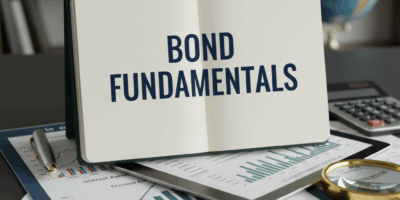Best Bank
Choosing the Best Bank: What to Consider
Choosing the best bank is a vital financial decision. It affects how you manage and grow your money. With numerous banking options, understanding what makes a bank suitable for your needs is crucial.
Types of Banks
Understanding the different types of banks helps narrow your choices. There are several categories:
- Commercial Banks: Offer a range of services like savings and checking accounts, loans, and credit cards.
- Credit Unions: Non-profit institutions owned by their members. Often provide better interest rates and lower fees.
- Online Banks: Operate without physical branches. Tend to offer higher interest rates and lower fees.
- Investment Banks: Specialize in services like wealth management, stock trading, and financial advising.
Interest Rates and Fees
Interest rates and fees impact your banking experience. Different banks offer varying rates for savings accounts, loans, and credit cards. Evaluating these rates helps maximize your returns and minimize costs.
Fees are another critical aspect. Banks may charge for account maintenance, ATM use, overdrafts, and more. Understanding these fees and how to avoid them can save money in the long run.
Accessibility and Convenience
Accessibility includes the number of branch locations and ATMs. For those who prefer in-person banking, having a nearby branch is essential. ATM accessibility reduces fees, especially if your bank has a large network or partners with other institutions.
Online and mobile banking capabilities offer convenience. Features like mobile check deposit, easy transfers, and user-friendly apps enhance your banking experience. Evaluate these digital services before choosing a bank.
Customer Service
Good customer service is invaluable. Look for banks with solid reputations for resolving issues promptly. Online reviews and ratings provide insights into customer experiences. A bank that readily assists with problems adds peace of mind.
Security Measures
Security is paramount. Ensure the bank employs strong encryption, robust authentication protocols, and fraud monitoring. Check that the bank is insured by the Federal Deposit Insurance Corporation (FDIC) or National Credit Union Administration (NCUA) for credit unions. This protects your deposits up to $250,000.
Special Features and Programs
Many banks offer special features or programs. These may include reward programs for credit cards, automatic savings plans, or budgeting tools. Assess these features to see if they align with your financial goals.
The Importance of Research
Conducting thorough research is key. Compare service offerings, interest rates, fees, and customer reviews across multiple banks. Take note of any special promotions or bonuses for opening new accounts. A comprehensive evaluation helps make an informed decision.
Personal Financial Needs
Understanding your financial needs and goals guides your bank choice. Whether it’s saving for a major purchase, securing a loan, or managing daily transactions, align the bank’s services with your objectives.
Top Banks to Consider
Several banks consistently receive high ratings for their services. Here are a few notable ones:
- Chase Bank: Renowned for its widespread branch network and comprehensive services.
- Bank of America: Known for its extensive ATM network and robust digital banking features.
- Wells Fargo: Offers a wide range of personal banking options and solid customer service.
- Ally Bank: An online bank with competitive interest rates and low fees.
- Discover Bank: Provides attractive rewards programs and high-yield savings accounts.
- Navy Federal Credit Union: Highly rated for customer service and favorable loan rates.
Each bank has its strengths. Identifying which aligns with your needs will ensure a satisfactory banking experience.
Ensuring Future Readiness
Consider your long-term financial plans. A bank that supports not only your current requirements but also future needs allows for a smoother financial journey. Look for banks that offer a range of products from basic checking and savings accounts to investment options and retirement planning.
Switching Banks
If your current bank no longer meets your needs, don’t hesitate to switch. Many banks facilitate transitions with transfer services and switch kits. Make sure to close old accounts properly to avoid unnecessary fees or forgotten balances.
Next Steps
Create a checklist based on the factors we’ve discussed. Then, start your research, perhaps beginning with the top banks mentioned. Take your time, compare, and choose a bank that aligns with your financial aspirations.



